An Elegy of Place
Old English elegists were saddened and inspired by the ruins of centuries-old walls and buildings, the detritus of Roman Britain. Our first elegy revolves around such ruins. In Bath, Sussex, visitors can see what may have been the same complex of stone buildings, circular pool, walls, and heated baths that inspired the Old English poet:
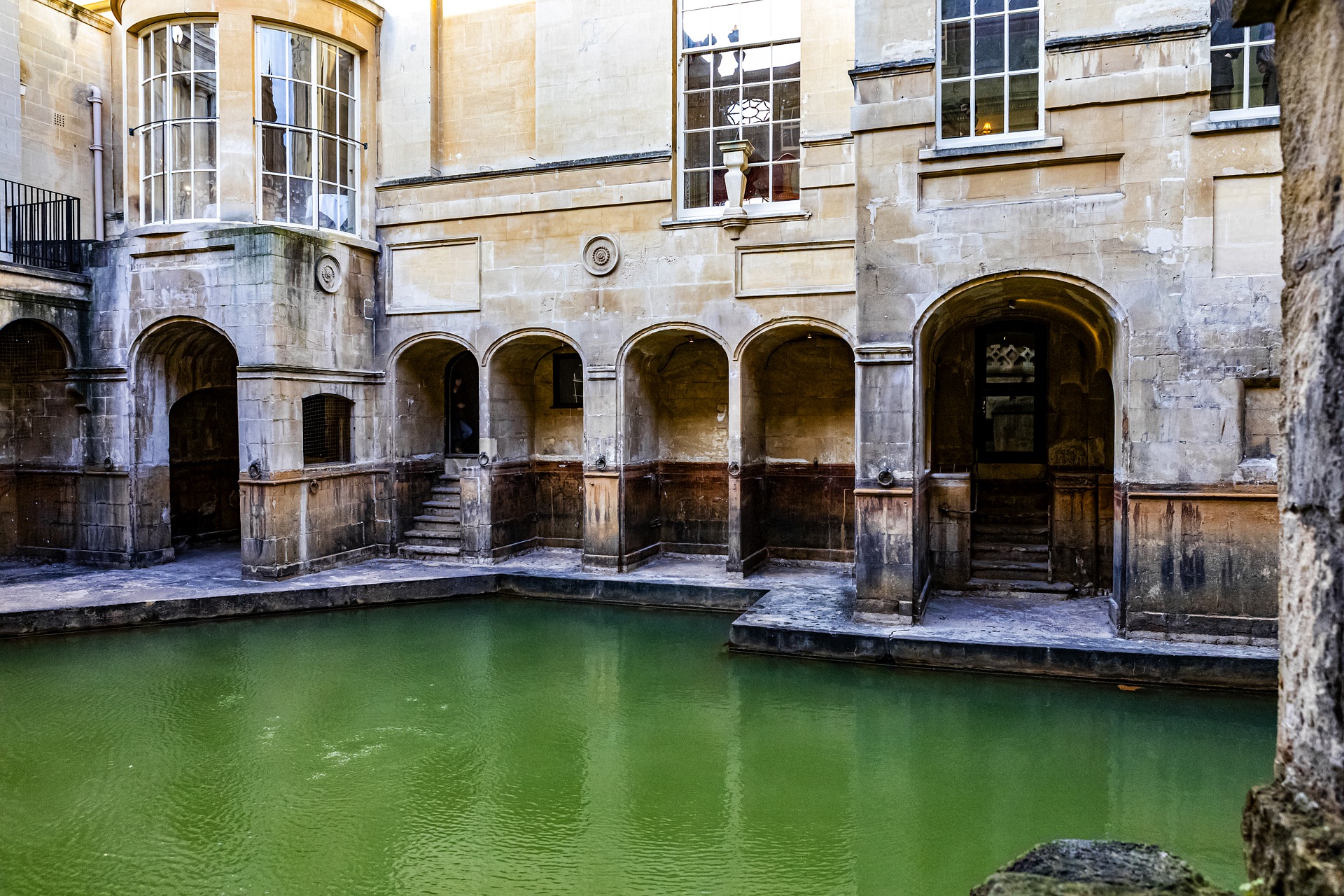
The original text of this elegy has been badly damaged over time. Areas where the text is either missing or illegible are noted in [brackets]. Ironically, this poem about ruins is itself a ruin, albeit one made of words rather than stones.
This lecture will explore the ruins of manuscript, masonry, and mind.
As you read “Elegy A” think of what it’s about. How would you title it?
Elegy A
Translated by Dr. Aaron K. Hostetter
Audio: flames occur at the points where the manuscript has been damaged by fire and the words lost.
These wall-stones are wondrous —
calamities crumpled them, these city-sites crashed, the work of giants
corrupted. The roofs have rushed to earth, towers in ruins.
Ice at the joints has unroofed the barred-gates, sheared
the scarred storm-walls have disappeared—
the years have gnawed them from beneath. A grave-grip holds
the master-crafters, decrepit and departed, in the ground’s harsh
grasp, until one hundred generations of human-nations have
trod past. Subsequently this wall, lichen-grey and rust-stained,
often experiencing one kingdom after another,
standing still under storms, high and wide—
it failed—
The wine-halls moulder still, hewn as if by weapons,
penetrated [XXXXXXXXXXXXXXXXXXX]
savagely pulverized [XXXXXXXXXXXXXX] [XXXX] shined [XXXXXXXXXX]
[XXXX] adroit ancient edifice [XXXXX] [XXXXXXX] bowed with crusted-mud—
The strong-purposed mind was urged to a keen-minded desire
in concentric circles; the stout-hearted bound
wall-roots wondrously together with wire. The halls of the city
once were bright: there were many bath-houses,
a lofty treasury of peaked roofs, many troop-roads, many mead-halls
filled with human-joys until that terrible chance changed all that.
Days of misfortune arrived—blows fell broadly—
death seized all those sword-stout men—their idol-fanes were laid waste —
the city-steads perished. Their maintaining multitudes fell to the earth.
For that the houses of red vaulting have drearied and shed their tiles,
these roofs of ringed wood. This place has sunk into ruin, been broken
into heaps,
There once many men, glad-minded and gold-bright,
adorned in gleaming, proud and wine-flushed, shone in war-tackle;
There one could look upon treasure, upon silver, upon ornate jewelry,
upon prosperity, upon possession, upon precious stones,
upon the illustrious city of the broad realm.
Stone houses standing here, where a hot stream was cast
in a wide welling; a wall enfolding everything in its bright bosom,
where there were baths, heated at its heart. That was convenient,
when they let pour forth [XXXXXXXXX] over the hoary stones
countless heated streams [XXXXXXXXXXX] until the ringed pool
hot [XXXXXXXXXXXXXX] where there were baths
Then is [XXXXXXXXXXXXXXXXX]. That is a kingly thing—
a house [XXXXX],
a city
Mastery Check:
- In what way is the manuscript of the poem known as “The Ruin” like the ruins it describes?
- How does the poet imagine the ruins back before they were ruined?
- What ruined the ruins?
- The first word of the modern English translation of “The Ruin” is “these”; what is the first word of poem in Old English?
- How does “The Ruin” end?
Remnants of Early England
Only ruins remain of the once vibrant world of the Old English elegist. Below are pictures of the 11th-century ruins of the Holy House of Nazareth, Walsingham, photographed by Nick Hoffman. Can you imaginatively reconstruct this popular pilgrimage destination as the medieval poet imaginatively reconstructed the ruins of Roman Britain?
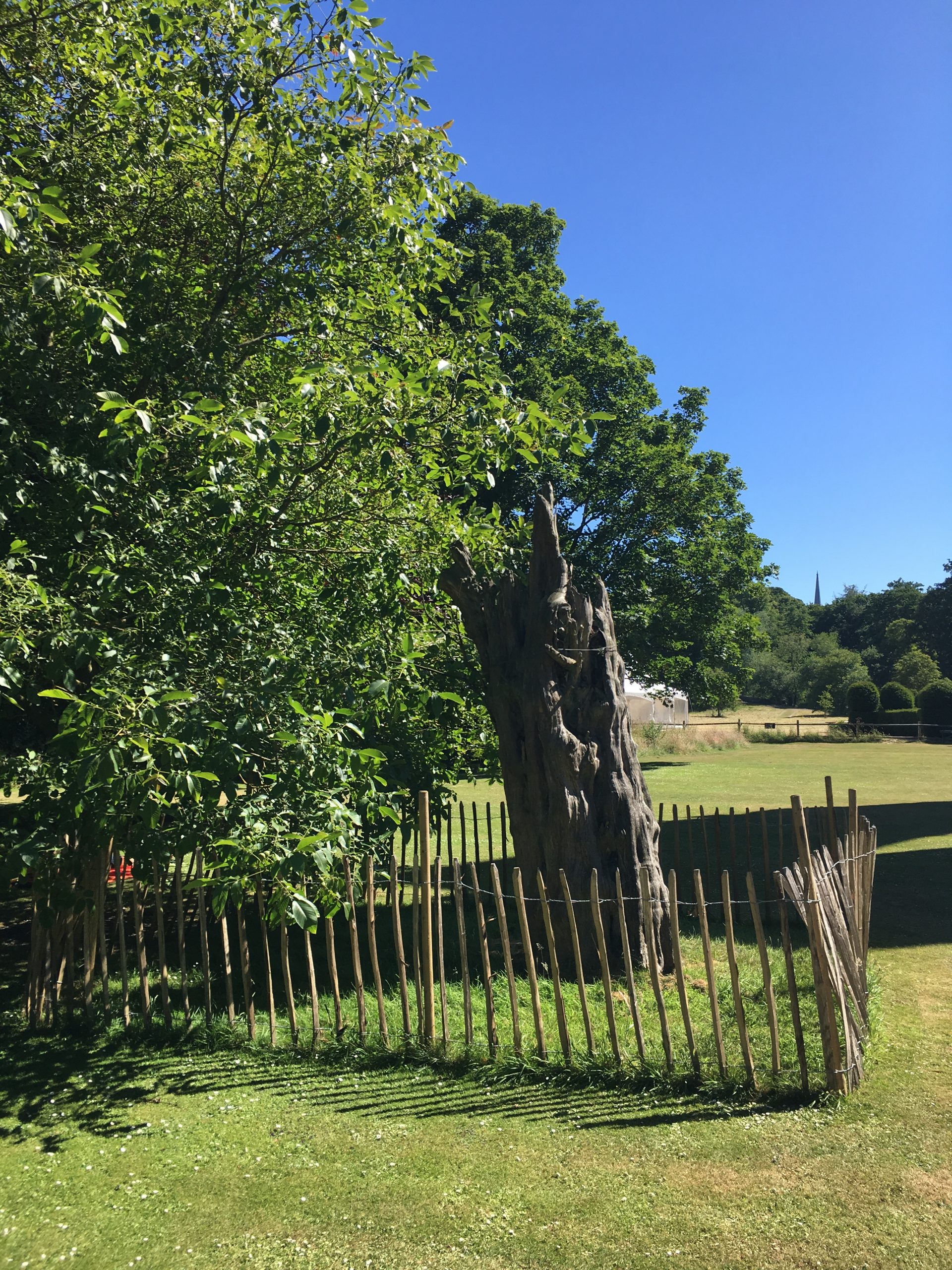
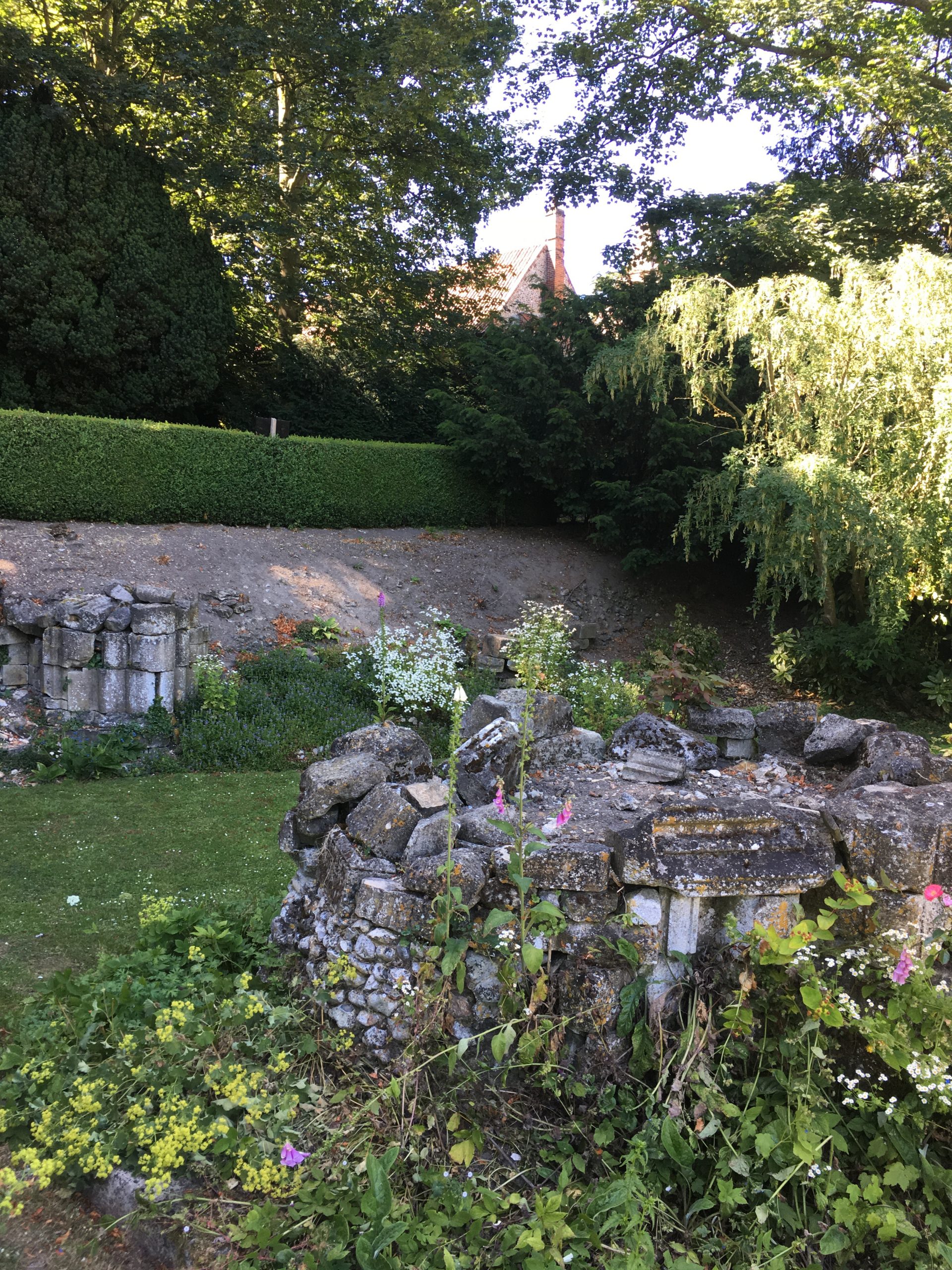
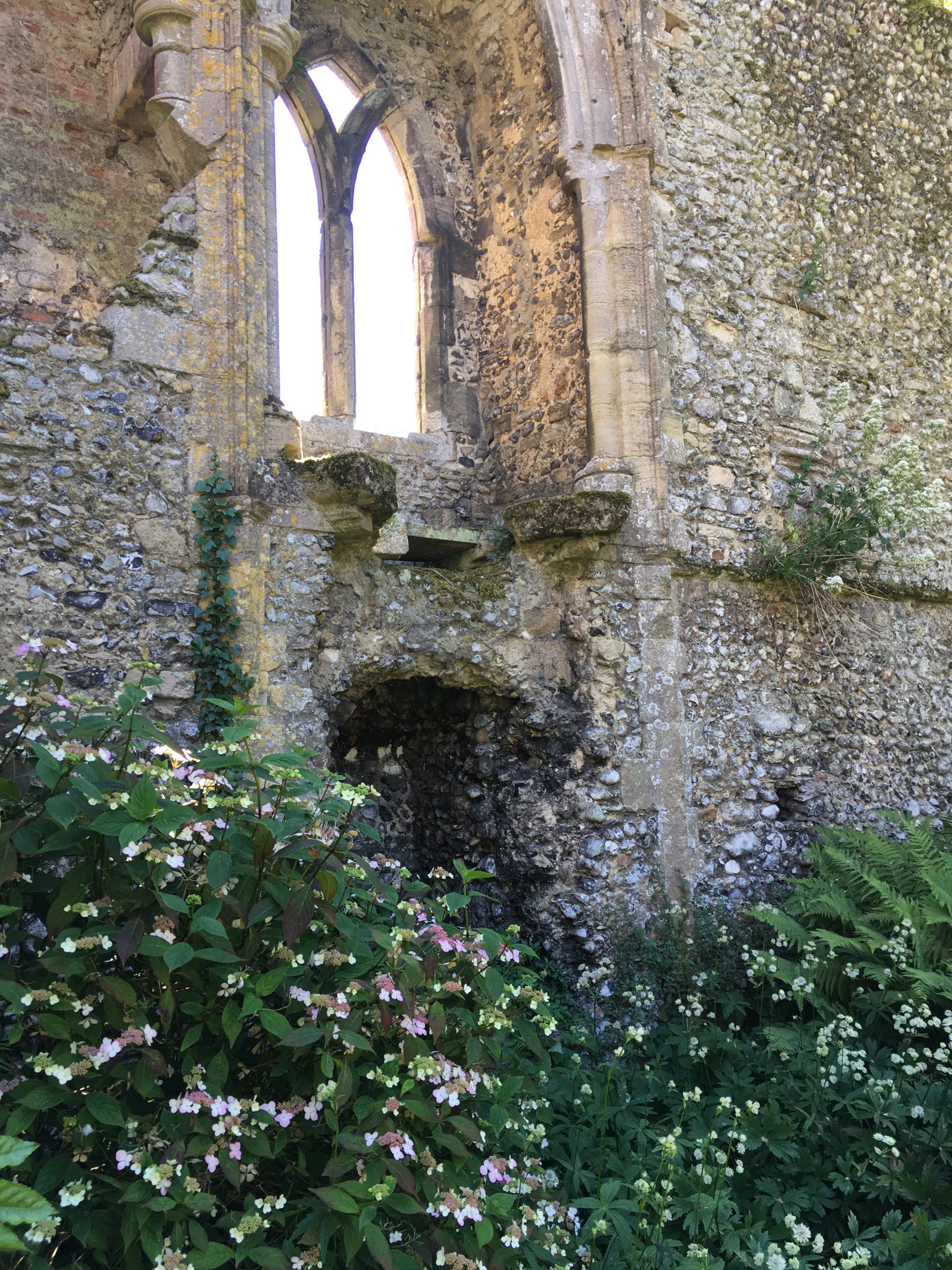
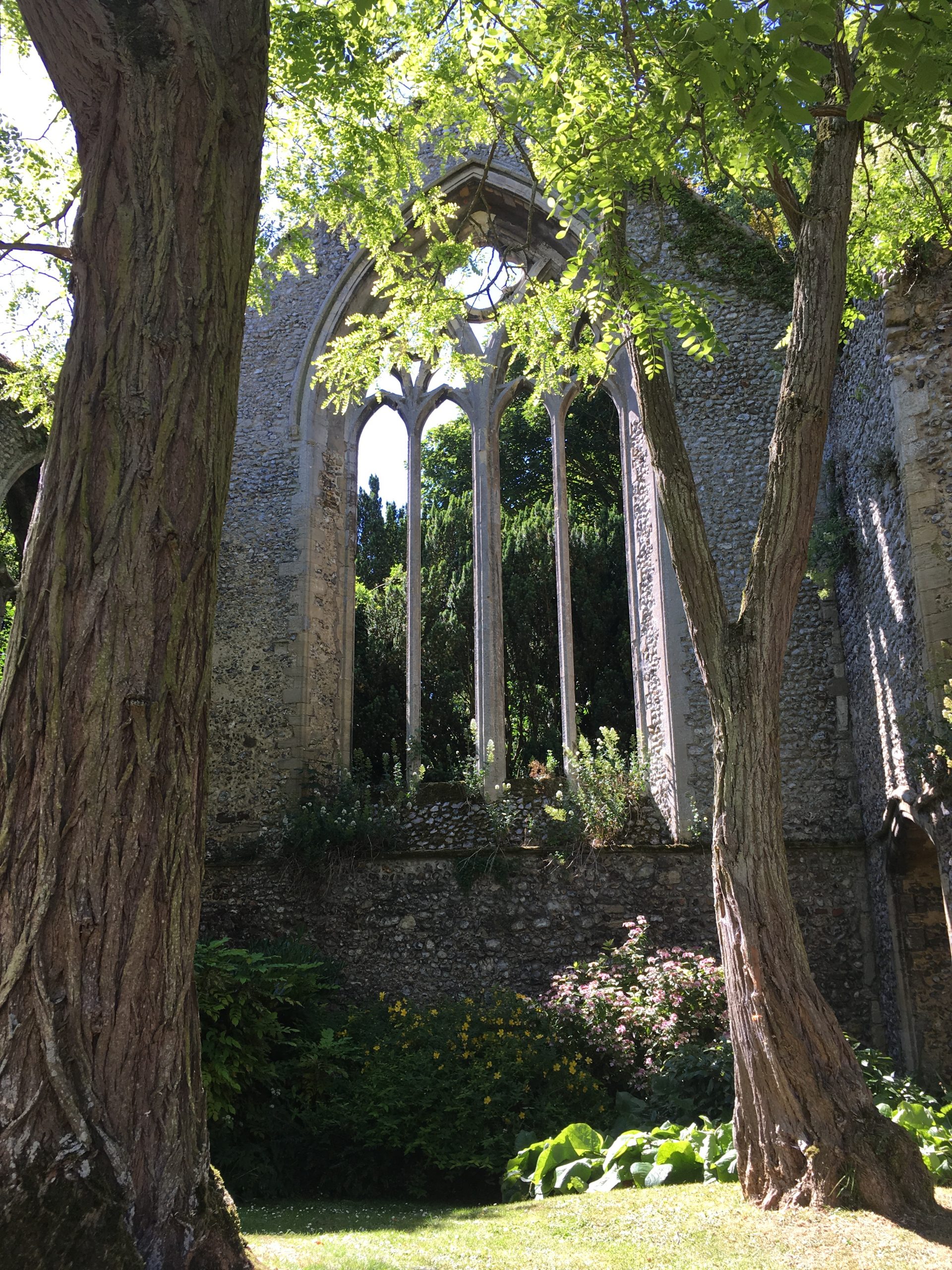
In a few hundred years, what ruins do you suppose our descendants will be seeing?
You might think about writing an elegy as part of your portfolio. Your elegy could take all kinds of forms. See how Richard Fahey uses the Old English elegies you have just read to reflect upon the ruins of South Bend, Indiana, in his 2017 elegiac blog.
In 2019, one of my 2201 students drew my attention to Michael Kerrigan’s magnificent Abandoned Palaces, a modern elegy in word and image of the “great houses, mansions, estates and hotels suspended in time”:
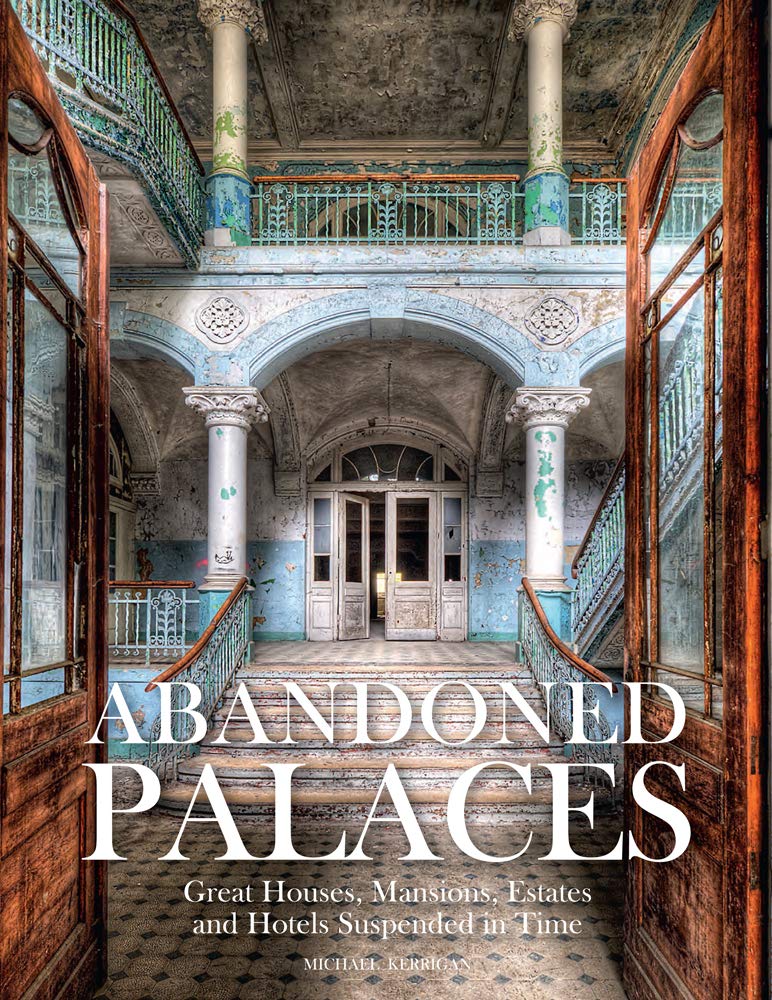
Latin: Britannia or, later, Britanniae, "the Britains". Roman Britain was the area of the island of Great Britain that was governed by the Roman Empire, from 43 to 410 AD. It comprised almost the whole of England and Wales and, for a short period, southern Scotland. (source: Wikipedia)
Our Lady of Walsingham is a title of the Blessed Virgin Mary venerated by Catholics and some Anglicans associated with the Marian apparitions to Richeldis de Faverches, a pious English noblewoman, in 1061 in the village of Walsingham in Norfolk, England. Lady Richeldis had a structure built named "The Holy House" in Walsingham which later became a shrine and place of pilgrimage. (source: Wikipedia)